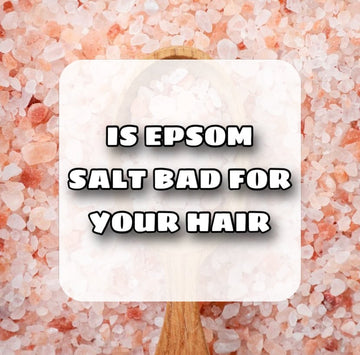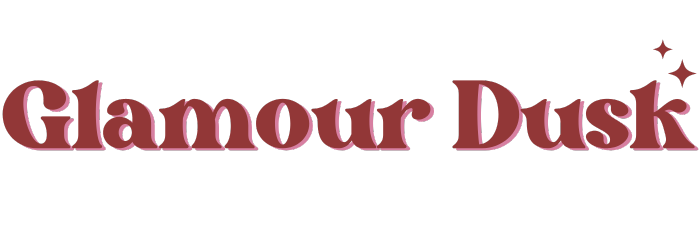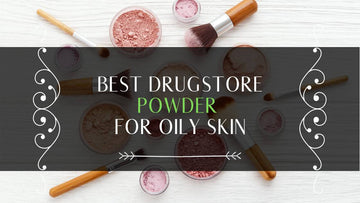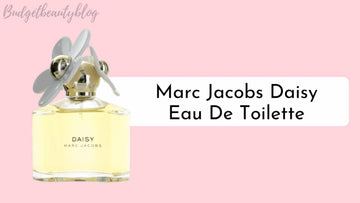
Are you curious about the effects of Epsom salt on your hair? Many people swear by its numerous benefits, but is it possible that Epsom salt could be bad for your hair?
In this article, we will delve into this perplexing question and explore the negative effects of Epsom salt.
We will also uncover its impact on hair loss, hair color, and overall hair growth.
Furthermore, we will discuss the safety of Epsom salt for your scalp and color-treated hair.
Stay tuned as we dive into the potential antibacterial properties and discover how to determine if your Epsom salt is potentially harmful.
Get ready to uncover the truth about Epsom salt and your precious locks!

What are the negative effects of Epsom salt?

The negative effects of Epsom salt on hair have been a topic of concern for many. While some people swear by its benefits, it's important to be aware of potential drawbacks.
One possible negative effect is that Epsom salt can cause dryness and strip the natural oils from your hair. This can leave your hair feeling brittle and more prone to breakage.
Additionally, using Epsom salt excessively or in high concentrations may lead to scalp irritation and sensitivity. It's crucial to use it in moderation and follow instructions carefully when using Epsom salt on your hair.
It's also worth noting that Epsom salt may not be suitable for color-treated hair, as it may cause fading or alter the color.
If you have any concerns or specific hair conditions, it's always best to consult with a professional before using Epsom salt on your hair.
How do you use Epsom salt for hair loss?

Using Epsom salt for hair loss is a popular method that some people claim can help promote hair growth and reduce hair fall. The process involves creating a hair mask or rinse using Epsom salt and water.
To use Epsom salt for hair loss, start by mixing two tablespoons of Epsom salt with one cup of water. Stir the mixture until the salt is dissolved. Then, apply the solution to your scalp and massage it gently for a few minutes. Leave it on for about 20 minutes before rinsing it out with lukewarm water.
It is important to note that while some people have reported positive results, scientific evidence regarding the effectiveness of Epsom salt for hair loss is limited.
As with any new treatment, it is recommended to consult with a healthcare professional before incorporating Epsom salt into your hair care routine.
Is Epsom salt bad for hair color?

Using Epsom salt on your hair may have negative effects on its color. When applied excessively or in high concentrations, Epsom salt has the potential to cause fading or alter the color of your hair.
The salt can potentially strip away the color molecules, resulting in a dull or washed-out appearance.
Additionally, if you have color-treated hair, Epsom salt may cause the color to fade more quickly than usual.
It's important to consider these factors before incorporating Epsom salt into your hair care routine, especially if you are concerned about preserving the vibrancy and longevity of your hair color.
It's always a good idea to consult with a professional hairstylist or colorist before using any products or ingredients that may impact the color of your hair.
What happens if you put too much Epsom salt in a bath?

If too much Epsom salt is added to a bath, it can have negative effects on the skin and body. Excessive amounts of Epsom salt can cause the skin to become excessively dry and can lead to irritation and discomfort.
It may also cause a feeling of tightness and can strip the natural oils from the skin, leaving it prone to dryness and potential breakouts.
Additionally, prolonged exposure to high concentrations of Epsom salt in a bath may cause dehydration and can disrupt the body's electrolyte balance.
It is important to follow the recommended guidelines for Epsom salt use in baths, which typically suggest using 1-2 cups of Epsom salt per standard-sized bathtub.
Be sure to consult with a healthcare professional if you experience any adverse effects from using Epsom salt in your bath.
How does Epsom salt help hair growth?

Epsom salt is believed to help promote hair growth for several reasons. Firstly, it contains magnesium, which is known to play a crucial role in hair health. Magnesium helps to strengthen hair follicles, leading to stronger and healthier hair growth.
In addition, Epsom salt can also improve blood circulation to the scalp. This increased blood flow nourishes the hair follicles and supports the growth of new hair strands.
Furthermore, Epsom salt has exfoliating properties that can help remove dead skin cells and product buildup from the scalp. This can create a healthier environment for hair growth and prevent scalp issues that may hinder hair growth.
However, it's important to note that while Epsom salt may have potential benefits for hair growth, scientific evidence is limited.
Is Epsom salt safe for scalp?

Epsom salt is generally considered safe for the scalp when used properly and in moderation. However, it's important to note that everyone's scalp is different and may react differently to certain products or ingredients.
Using Epsom salt on the scalp can have potential benefits. It contains magnesium, which has been shown to support hair health and strengthen hair follicles.
Additionally, Epsom salt has exfoliating properties that can help remove dead skin cells and product buildup from the scalp, promoting a healthier environment for hair growth.
That being said, it is crucial to use Epsom salt on the scalp in moderation and follow the recommended guidelines. Excessive use may lead to scalp irritation and sensitivity.
It's also important to consider individual circumstances, such as any pre-existing scalp conditions or sensitivities, before incorporating Epsom salt into your hair care routine.
If you have any concerns, it's always best to consult with a professional hairstylist or dermatologist.
When should you not soak in Epsom salt?

While Epsom salt has various benefits and is generally safe to use, there are certain situations when you should avoid soaking in it.
Firstly, if you have open wounds, cuts, or broken skin, it is recommended to refrain from using Epsom salt. The salt can sting and further irritate the already sensitive area, potentially delaying the healing process.
Additionally, individuals with certain medical conditions, such as diabetes or kidney disease, should consult with a healthcare professional before using Epsom salt.
It is important to consider individual circumstances and any potential interactions between Epsom salt and medications or existing health conditions.
Lastly, if you are pregnant or breastfeeding, it is advisable to seek medical advice before using Epsom salt for soaking. It is always best to prioritize your health and consult with a healthcare professional when in doubt.
Is Epsom salt safe for color-treated hair?

Epsom salt can have negative effects on color-treated hair. Excessive or concentrated use of Epsom salt has the potential to fade or alter the color of your hair.
This is because Epsom salt can strip away the color molecules, resulting in a dull or washed-out appearance. If you have color-treated hair, it is important to consider these factors before incorporating Epsom salt into your hair care routine.
It is recommended to consult with a professional hairstylist or colorist who can provide guidance on preserving the vibrancy and longevity of your hair color.
They can help assess the potential risks and provide alternatives if needed. Prioritizing the health and appearance of your color-treated hair is essential, and consulting a professional is always advisable in these circumstances.
Is Epsom salt antibacterial?

Epsom salt has been touted for its various benefits and uses, but is it antibacterial?
While epsom salt is commonly used for its exfoliating properties and can help remove dead skin cells and product buildup from the scalp, it does not possess strong antibacterial properties.
While it may be effective in creating a healthier environment for hair growth, it is important to note that epsom salt is not a substitute for proper hygiene or medicated treatments for bacterial or fungal infections.
If you are experiencing any scalp issues or infections, it is always best to consult with a professional dermatologist who can provide appropriate guidance and treatment options.
Prioritizing proper scalp care and seeking the advice of a medical professional is crucial for maintaining a healthy scalp and hair.
How do you know if Epsom salt is bad?

It is important to be aware of the potential negative effects of using Epsom salt on your hair. While Epsom salt may have some benefits for hair growth and scalp health, it can also be bad for your hair in certain circumstances.
If you notice any adverse reactions such as scalp irritation, dryness, or increased hair breakage, it could be a sign that Epsom salt is not suitable for your hair.
Additionally, if you have color-treated hair, excessive or concentrated use of Epsom salt can fade or alter the color of your hair, leading to a dull or washed-out appearance.
It is crucial to consider individual factors such as hair type, condition, and any pre-existing scalp issues before using Epsom salt.
If you experience any negative effects, it is recommended to discontinue use and consult with a professional hairstylist or dermatologist for guidance and alternative solutions.
Conclusion
Epsom salt has both positive and negative effects on hair, making it a topic of debate.
While it can be beneficial for hair growth and scalp health, it may have negative consequences for hair color-treated individuals.
Excessive use of Epsom salt can also lead to dryness and damage to the hair and scalp.
It is important to use Epsom salt in moderation and follow recommended guidelines.
Additionally, some individuals may have allergies or sensitivities to Epsom salt, making it unsuitable for use.
As with any product, it is essential to listen to your body and discontinue use if any adverse reactions occur.




